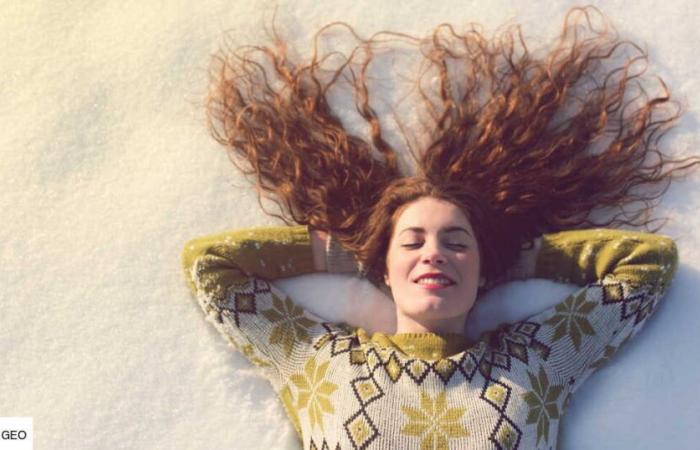The first snowflakes of the season appear in France this Thursday, November 21. However, the temperatures are still far from having fallen low enough for your sleep or your mood to improve. Because according to a study carried out by the University of Poitiers, the first benefits only appear after exposure to -90°C.
If these extreme conditions are only found in very rare places on the planet, this is a cryostimulation chamber, details Science Alert. In these specific spaces, bodies are subjected to intense negative temperatures for limited periods of time. The study, published in the journal Cryobiology, shows an improvement in the restorative properties of sleep.
A daily cryostimulation session at -90°C helps you sleep better
“Our analysis of the architecture of sleep revealed a significant increase in slow-wave sleep duration during nights following cryostimulation compared to nights without cryostimulation.”confirms kinesiologist Olivier Dupuy, from the University of Montreal in Canada.
Ice fishing, paddle, cold water surfing… 10 cool ideas to enjoy 1
During the first two sleep cycles, slow wave sleep (the most restorative phase) is prolonged by 7.3 minutes on average. These results were observed after observing 20 healthy people, aged on average 23 years, for five days. Once their daily cryostimulation session was over, they had to continue their day as usual but without alcohol, coffee or sport (all factors that can affect the quality of sleep).
To retrieve the data, brain and heart sensors measured their biological activity to determine the quality of their sleep. Upon waking up, a questionnaire about their night also revealed an improvement in mood as well as a reduction in anxiety. Two elements particularly notable among women, specifies the study.
Tips for relieving sleep disorders
“Women and men did not react in the same way”explains Olivier Dupuy. “This suggests that the dose of cold should be adjusted based on sex, although this requires further study.”
These initial results lay the foundations for future experiments where the panel could be increased in order to solidify these conclusions, where a potential placebo effect is rejected. These new studies should help lead to better treatments to relieve sleep disorders. The fight against chronic inflammation and early signs of dementia, or more simply improving the recovery of high-level athletes are also discussed.






